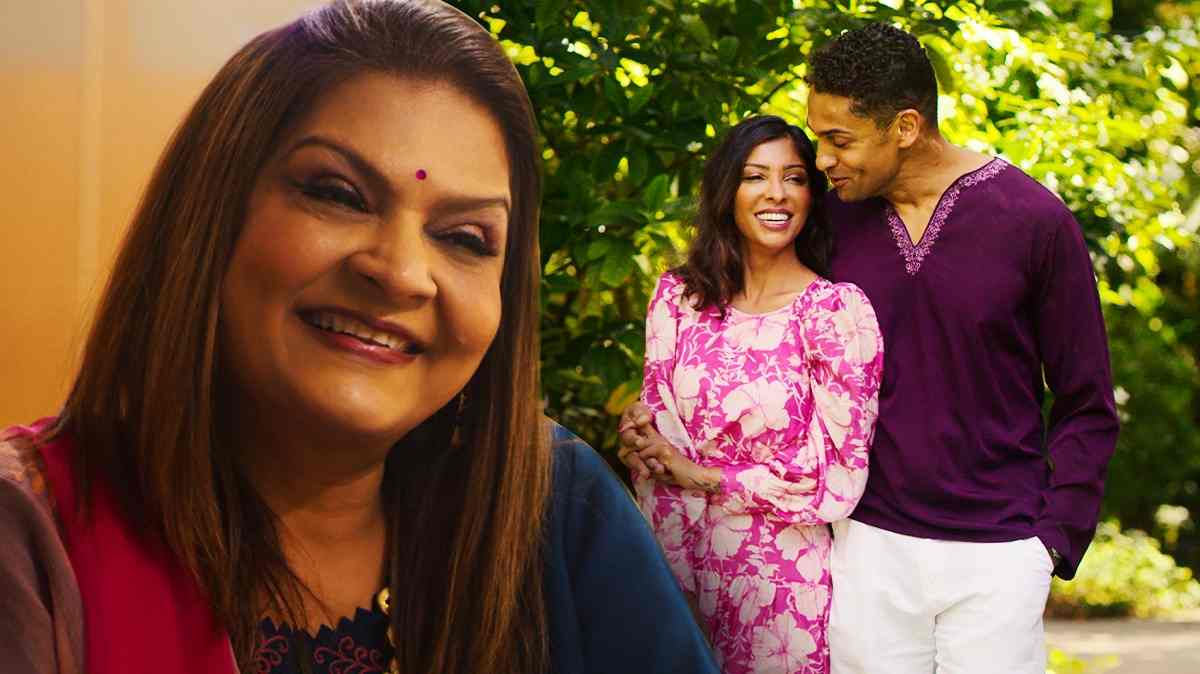The third season of Indian Matchmaking aired last week and created quite a buzz. Known to glorify the veiled vices of Indian society, the show and our beloved Sima Taparia from Mumbai did not fail to disappoint us. The reign only spread larger with England added to the conquered lands of matchmaking. With three seasons and not a single materialised marriage, the matchmaker does not shy from doling out the usual wisdom of how women must not be “picky” and learn to “compromise.”
The Netflix series depicts upper-caste/class Hindus living in lavish Delhi bungalows and lunching at the Claridge’s. The Bollywood fairy tale setting with manicured lawns and airbrushed faces hides the caste-class-gender prejudices in the usual long list of criteria of “same community,” “cultured”, “upbringing” and “wanting a family”.
The Netflix series depicts upper-caste/class Hindus living in lavish Delhi bungalows and lunching at the Claridge’s. The Bollywood fairy tale setting with manicured lawns and airbrushed faces hides the caste-class-gender prejudices in the usual long list of criteria of “same community,” “cultured”, “upbringing” and “wanting a family”.
Divorce is a disadvantage
The first client in the series is Priya. A 35 years old divorcee who has a long list of criteria and is a hesitant, independent, introverted woman. An attribute that she is adamant about is that her prospective partner must have a youthful appearance and a full head of hair. Sima Taparia, the Indian aunty who is on a mission of getting every Indian married asserts that Priya is “too picky.”
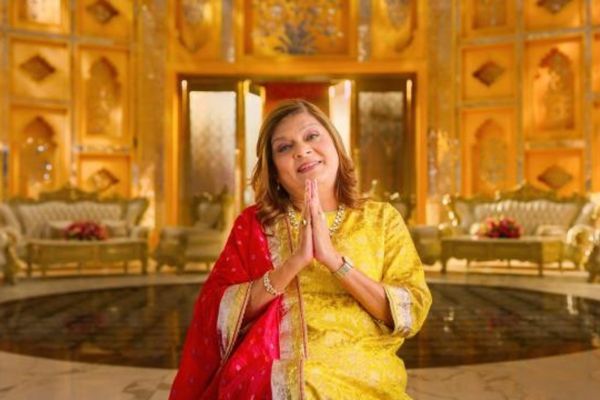
The usual advice of learning to be more flexible and compromising is combined with a chiding of how hair can hold so much importance. The absolute dismay at vanity is coming from a woman who in the previous seasons had pressed a great deal on looks and height.
Sima Taparia became the representative and sole spokesperson of what marriages in India look like. To the world, this Netflix documentary successfully proved how cultured Indians are hiring a matchmaker to tell them what inquisitive relatives would have told them for free. When Rushali, a model and poet express how she would prefer a poet or a person who appreciates poetry, she is quietly told to read a book instead. Being too picky or judgy doesn’t get a girl far in the marriage business after all.
She gently remarks that if the girl cares about the hair so much, “maybe she needs to open a salon.” Bringing her wisdom to life, Sima’s first ideal match suggestion for Priya is a bald man.
Don’t marry a poet, read a book
Sima Taparia became the representative and sole spokesperson of what marriages in India look like. To the world, this Netflix documentary successfully proved how cultured Indians are hiring a matchmaker to tell them what inquisitive relatives would have told them for free.
Also Read: All The Reasons Indian Matchmaking Does Not Deserve An Emmy Nomination
When Rushali, a model and poet express how she would prefer a poet or a person who appreciates poetry, she is quietly told to read a book instead. Being too picky or judgy doesn’t get a girl far in the marriage business after all.
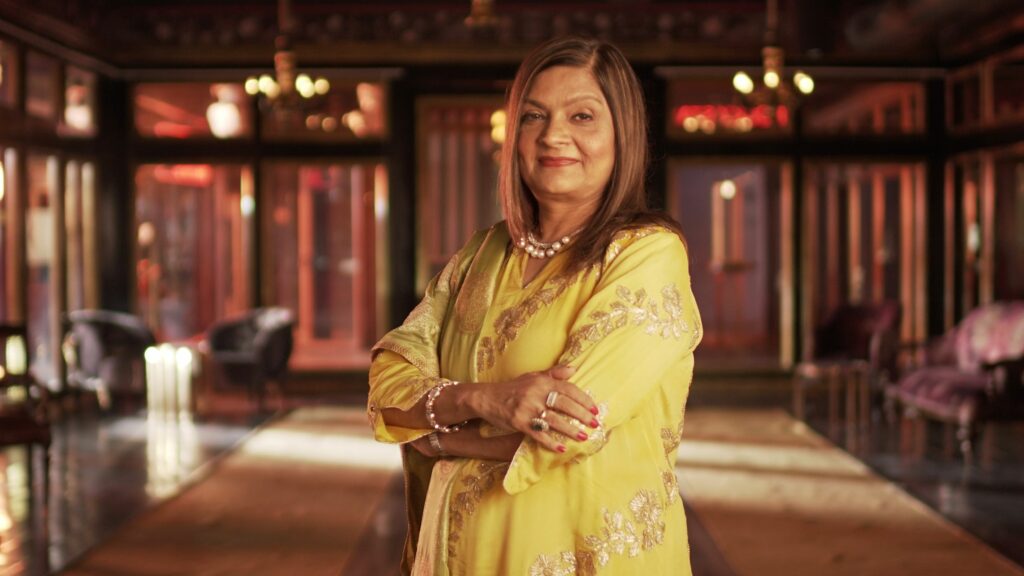
The Delhi girl shared how she wants to continue living with her parents even after marriage. The matchmaker is shocked to the extent that she sends the girl to a relationship counselor to be able to decide if she would want to marry or stay with her parents. How easily is a societal prejudice of a woman having to move to her in-laws justified and supported with the parent’s nod!
Beyond 30 is too late: The Indian matchmaking way
This season shows Sima Taparia not just as a matchmaker but as a wife, mother, grandmother, sister, and a typical Indian woman who carries her tea and snacks everywhere she goes. In a casual conversation with her daughters, she exclaims how the ideal age to get married is 30, and anything beyond that number is too late. The exact categorisation of age is not only just a blatant denial of the youth’s thirst for a career. It is also a slight remark on how the institution of marriage depends on the idea of procreation. The younger the couple, the better the chances.
Also Read: The Class Privilege In Indian Matchmaking & Four More Shots Please
Vivacious Vikash, a narcissist who refers to himself in the third person and demands a Hindi-speaking cultured girl who lives in America is evidently too old for Sima’s standards. He still has the audacity of penning down a list of criteria and is dismissed as nobody gets everything, just 60-70% must suffice.
No match for Bobby
Amid entrepreneurs and an ER doctor, we meet Bobby. He is a teacher who does not belong to the class that sips high tea. He is silly, honest, and talks too much, and is portrayed as a binary for all the other tall, muscular, and rich men. He is almost ridiculed and forgotten after just a date with Priya.
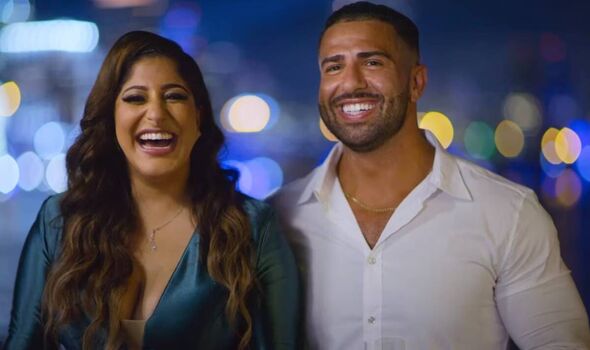
The gap in the cast and representation of a select gentry is pretty evident throughout. The slight mentions of the need for “cultured, good upbringing, sophisticated” partners are just a polite way of stating the class. The gap is so apparent in this season that Viral (a contestant from season two) is invited to India and gifted a diamond pear-cut bracelet as a memoir.
Same community, please
The series might have migrated to London, but the demands remain the same. Almost every criterion list states the need for “same community.” The culture is blamed, parents are seated for approvals and the general milieu is celebrated where they are almost always presented with options from the same religion, caste, and class. When Arti finds Jamal on a dating app, Sima is apprehensive because he is a Muslim. She reminds Arti how her father would have wanted her to marry a Sindhi.
Vikash though claims to be the “modern” guy, gently remarks how a Brahmin girl would fit best. The series does not seem to break any stereotype but re-strengthens every prejudice that India had cradled for so long. Ironically, the only marriage proposal at the end comes from Jamal and Arti.
Vikash though claims to be the “modern” guy, gently remarks how a Brahmin girl would fit best. The series does not seem to break any stereotype but re-strengthens every prejudice that India had cradled for so long. Ironically, the only marriage proposal at the end comes from Jamal and Arti.
You will not get everything: The Indian matchmaking way
The series reverberated with Sima’s mantra. It gets dragged after the repetitive assertions of the need to be flexible and how marriage is just a compromise. Couples are seated on a red sofa at the beginning of every episode which almost hammers the idea of how arranged marriages are ideal. Whatever Sima says is justified by their recounting their marriages.
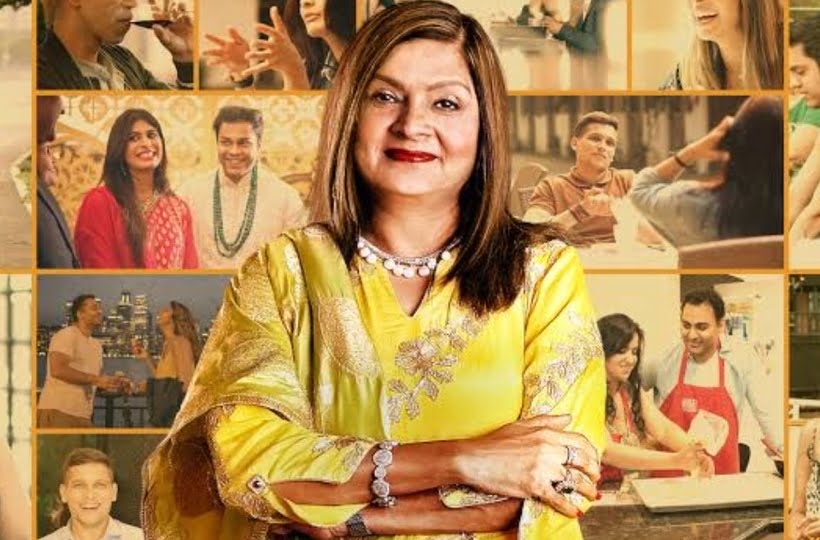
The couples are the poster child for Indian marriages. They are not rebellious and are all compromising. With the usual chuckle on how never to say no to your wife or celebrating how they didn’t have agency in the most important decision of their lives, they are romanticising marriage.
Indian matchmaking is the ideal match of prejudices, superstitions, and stereotypes. Sima’s sexist and casteist wisdom is supplied with the “experienced” nod from astrologers, tarot readers, face readers, and the patriarchs. It is time that such series are challenged with the real representation of Indian marriages and the challenges they face.
Also Read: Netflix’s Indian Matchmaking 2: Why Does Sima Aunty Hate Confident Women And Pamper Spoilt Men?
About the author(s)
Dr. Guni Vats is an Assistant Professor at the Department of English, Manav Rachna International Institute of Research and Studies. A PhD in Gender Studies, she is a renowned researcher, writer, and scholar.
